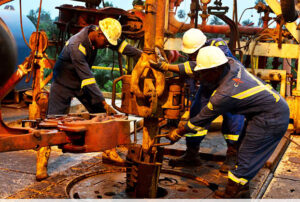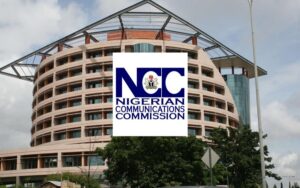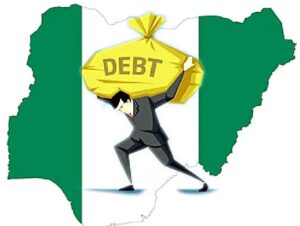Nigeria’s foreign interventions: Crafting structural patterns of optimising accruables
Giving consideration to the contribution of Nigeria to foreign missions and interventions is non-contestably on the radar of reflections of depths of sacrifices. The subject becomes very endearing when it comes to the depth of the Country’s contribution to peacekeeping mission within the African continent where the Country is perceived as a leader. It is not unconnected to the depth of her contributions that the Country has attracted the nomenclature of “the giant of Africa.” The profile of dues the Country bears financially to both regional and continental organisations, such as the Economic Community of West African States (ECOWAS) and the African Union (AU) remain highly substantial. The accumulation of these due over time, no doubt, have summed up to depths of colossal contributions.
Beyond dues to these regional/continental organisations, the Country has been known to be a frontline donor and stands at the vanguard of peacekeeping missions in the continent. The profile of financial and human resources which such missions had gulped are considerably colossal in profile when juxtaposed with the degree of development that such resources would have fostered should they have been sincerely and objectively expended on capital projects domestically. The High Commissioner of Sierra Leone to Nigeria, Dr. Solomon Gembeh, on Sunday, in reflection of the Country’s responsiveness to missions mentioned that Nigeria had spent over $13billion on the liberation of his country (Sierra Leone) and Liberia. He expressed loyalty in his remark that Sierra Leone will never forget the ‘big brother’ role played by Nigeria in the wars that engulfed the two countries. Gembeh who spoke in Abuja, mentioned that the role played and still being played by Nigeria had outweighed the support it received from Western nations. According to him, Nigeria’s help came out of goodwill, with nothing demanded in return, rather than a situation where such assistance was paid through the staking of national assets.
He was quoted: “Nigeria spent about $13bn in Sierra Leone and Liberia during the war years. What happened to those monies that you spent on us? You just shook hands with the government and walked away. That is what brothers do. What the West would have done will be to ask us to pay that money through concessions, oil rights and all those kind of stuffs. So, when you are talking about the help that the African Development Bank and all these institutions have done for Sierra Leone, you look at what Nigeria has done for us. You look at what the West claimed to have done for Sierra Leone over the years. I think Nigeria is a true big brother to us.”
The High Commissioner who pointed out that beyond the huge amount spent, Nigeria had continued to render assistance to his nation in the area of education which, according to him had experienced some decay along the way, further said that funds from Nigeria and the African Development Bank (AfDB) were effectively being utilised in educating its populace, especially the girl child. He was further quoted: “It is not going to be easy to see the end result of these educational interventions from these institutions and we are hopeful for the funds that Nigeria is still owing. Nigeria granted some funds for us and those things are still in the pipeline, perhaps those are areas that we might want to revisit as time goes on. Either way, Nigeria is our big brother, you have helped us greatly, even in this course that I just presented a lecture, it is sponsored by Nigeria. So, as far as the help that you guys have given us is incalculable, it is too much to quantify.”
Recently, Nigeria is known of her frontline role in restoring peace in such countries as Mali and Myanmar, among others, which recently were engulfed in coup d’etat. It is known that such interventions are not cheap, but require both costly human intelligence and financial resources. Such provisions attract colossal cost on the part of the Country. It is however pathetic that the Country with all the sacrifices has not exploited same for her benefits. It is known that the diplomatic prowess of the Government of Nigeria have been so weak that sensitivity to using these instruments to the advantage of the Country to enlarge her tentacles strategically in fortifying her profile in the international community remains passive.
Countries around the world which have been lively to the structural workings of international relations have over the years grown their diplomatic profile with systemic parameters to optimise to the fullest, the benefits that such contributions to international politics and foreign missions contain. Hence, the spurring orientation driving the efforts of such Countries towards these interventions are well defined to accumulate to their advantages, the best accruable benefits derivable from such interventions.
The necessity for the Nigerian Government to wake up to developing philosophical orientations to define her disposition towards international politics is significant. It is known that while the Country has nurtured good disposition of responsiveness to disturbances within the African continent, with applaudable peace keeping interventions, it is pitiable that the Country has fallen short in building structures to reap of such labour. Rather, the return Nigeria has gotten in turn appears to be pathetic with maltreatment of her citizens even within countries in the continents which at some point had benefited of her goodwill mission campaigns. It is paramount for the Nigerian Government to wake up to the liveliness of developing rational orientations to crafting structures of broad perspective for vitalising the configuration of her diplomatic relations to the height of virility; to assuming a status which strategically optimises the beneficial derivables of the engagements, contributions and interventions in the politics of her frontiers.




